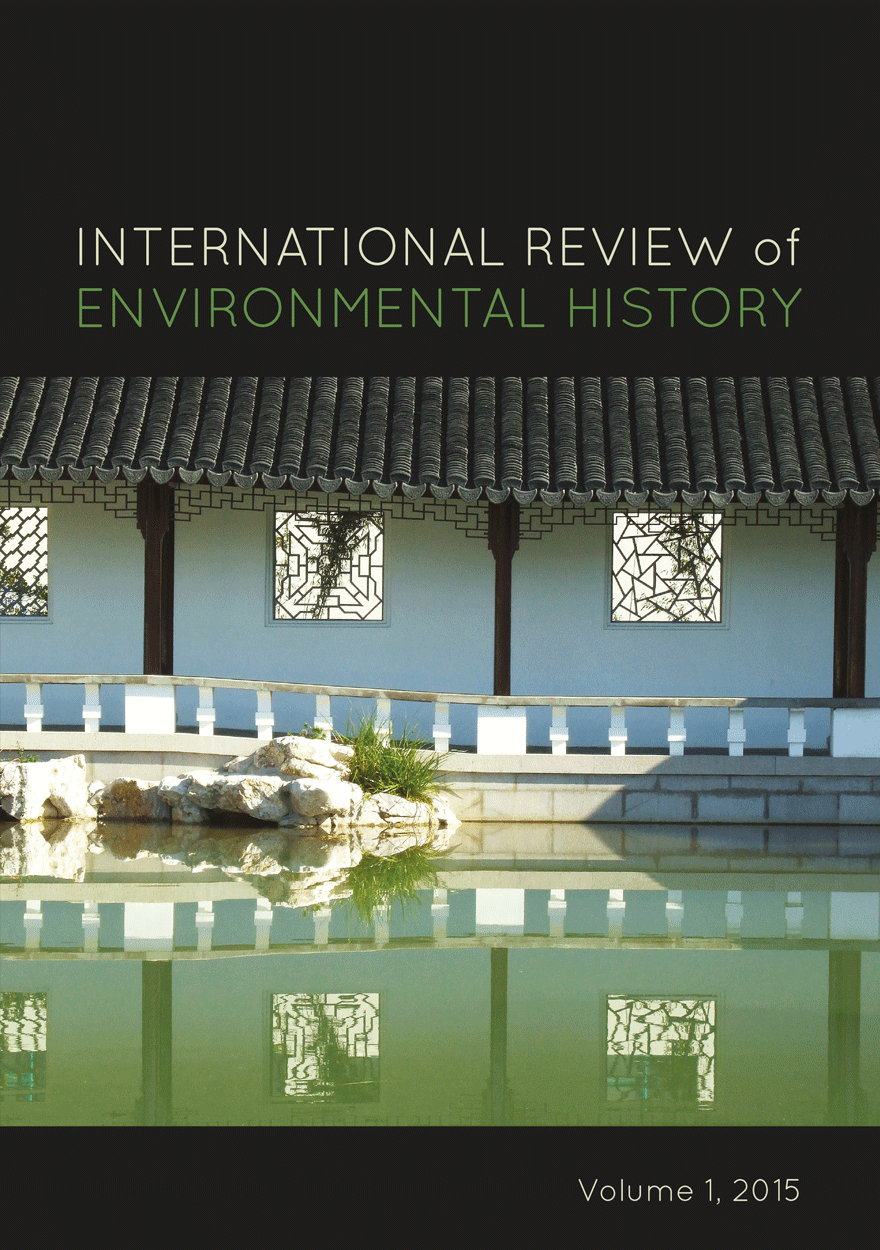International Review of Environmental History
International Review of Environmental History takes an interdisciplinary and global approach to environmental history. It publishes on all thematic and geographical topics of environmental history, but especially encourages articles with perspectives focused on or developed from the southern hemisphere and the ‘Global South’. This includes but is not limited to Australasia, East and South East Asia, Africa and South America.
International Review of Environmental History’s editorial board includes historians, scientists and geographers, as well as scholars from other backgrounds, who work on environmental history and related disciplines, such as ecology, garden history and landscape studies. The methodological breadth of International Review of Environmental History distinguishes it from other environmental history journals, as does its attempt to draw together cognate research areas in garden history and landscape studies.
The journal’s goal is to be read across disciplines, not just within history. We encourage scholars to think big and to tackle the challenges of writing environmental histories across different methodologies, nations and timescales. We embrace interdisciplinary, comparative and transnational methods, while still recognising the importance of locality in understanding these global processes.
International Review of Environmental History is happy to consider future special issues focusing on themes drawn from conferences or collaborations.
Ownership and management
The journal was created and developed by James Beattie. An anonymous donor provides funding to the journal for an editorial assistant. The Centre for Environmental History at The Australian National University sponsors the journal, and ANU Press publishes a free electronic version and a print-on-demand hard copy of the journal. It is also supported by the Environmental Research Institute of the University of Waikato, New Zealand: www.waikato.ac.nz/eri. Our open-access policy means that articles will be available free to scholars around the world, ensuring high citation rates and impact in and beyond the field of history. The journal is listed on Directory of Open Access Journals, ProQuest, InformIT, NLA National edeposit (accessed through Trove), ANU Open Research digital repository, EBSCO and Scopus.
Publishing schedule
International Review of Environmental History is published twice a year, in April and November. Special issues may also be published either within or outside the normal publication schedule of the journal.
Access
Fully open-access electronic publication with a print-on-demand paperback copy option.
Copyright and licensing
All issues published from Volume 4(1) onwards are published under Creative Commons Attribution-NonCommercial-NoDerivatives 4.0 International (CC BY-NC-ND 4.0). Issues published previous to this are under a standard copyright licence. Authors retain copyright of articles published in this journal.
Revenue sources
An anonymous donor provides funding to the journal for an editorial assistant.
Author fees
There are no fees charged to authors for publishing work in the International Review of Environmental History. Authors are, however, expected to pay where required any fees arising from using copyright works within their articles.
Peer review process
All articles submitted to this journal undergo a double-blind peer-review process. The peer-review process is arranged by the Journal Editor, who then decides upon publication, amendment or rejection. Manuscripts that undergo amendment may be subject to further review by the Journal Editor or an external reviewer.
Process for identification of and dealing with allegations of research misconduct
If the Journal Editor receives a credible allegation of misconduct by an author, reviewer, or editor, then they have a duty to investigate the matter with ANU Press, in consultation with relevant Associate Editors and members of the Editorial Board. If the claim is substantiated, the Editor will follow the guidelines set out by COPE for retracting the article in question.
If the Journal Editor receives convincing evidence that the main substance or conclusions of an article published in the journal are incorrect, then, in consultation with the journal’s Associate Editors and/or Editorial Board and ANU Press, the Journal Editor will ensure the publication of an appropriate notice of correction.
Publication ethics
International Review of Environmental History (IREH) follows the Committee on Publication Ethics (COPE) and its Best Practice Guidelines. Authors, editors and reviewers should familiarise themselves with these guidelines.
Duties/responsibilities of authors
Authors are responsible for providing:
- original submissions of articles, fully referenced according to the journal’s guidelines, which follow Chicago style with Australian spelling. For more details on Chicago style, please see: www.chicagomanualofstyle.org/tools_citationguide.html (incorrect referencing will mean that articles may not be considered for publication)
- payment for all costs and copyright permissions of all images
- filling out journal copyright and author’s declaration forms, which will be provided to authors once an article is accepted for publication
- acknowledgement of any material that has been previously published
- acknowledging any external research grants/conflicts of interest.
Duties/responsibilities of editors
- The Editor of International Review of Environmental History may reject a submitted manuscript without formal peer review if he/she considers it to be inappropriate for the journal and outside its scope.
- The Editor reserves the right to have final decisions on the content of all journal issues.
- The Editor keeps the peer-review process confidential.
- The Editor will make all reasonable effort to process submissions on time.
- The Editor will delegate the peer review of any original self-authored research article to a member of the editorial or advisory board as appropriate.
Duties/responsibilities of reviewers
Reviewers are responsible for ensuring:
- timely production of reviews
- fair and unbiased assessment
- they follow the guidelines for review document of the journal, which will be provided to the reviewer once they accept the position.
In addition, reviewers will keep in mind the following guidelines for the review: https://publicationethics.org/files/Ethical_Guidelines_For_Peer_Reviewers_2.pdf
Submission
Author(s) submitting an original manuscript to IREH must present unpublished work that is not under consideration elsewhere. Plagiarism, including duplicate publication of the author's own work, in whole or in part without proper citation is not accepted by the journal. IREH may check manuscripts submitted to the journal for originality using anti-plagiarism software.
- Authors must be aware of, and comply with, best practice in publication ethics including, but not limited to, plagiarism, manipulation of figures, declaration of competing interests and compliance with policies on research ethics.
- Reviewers and editors are required to treat manuscripts fairly and in confidence, and to declare any competing interests.
Plagiarism
International Review of Environmental History (IREH) will not accept plagiarised articles. Plagiarism is ‘the process or practice of using another person's ideas or work and pretending that it is your own’ (Cambridge Dictionary).
Plagiarism includes, but is not limited to:
- Copying or downloading figures, photographs, pictures or diagrams without acknowledgement of sources.
- Directly copying text from other sources without attribution, including text downloaded from the internet.
- Using an idea from another source with slightly modified language without attribution.
- Copying ideas, images or data from other sources without acknowledging the source.
- Reusing text from your own previous publications without attribution or agreement of the editor.
Misconduct
In situations of alleged misconduct, IREH will follow COPE guidance. In cases of misconduct, if necessary, we will correct or clarify the record. This may include retraction, issuing a correction or expression of concern, as per COPE guidelines.
Additional resources on publication ethics are available from COPE and WAME.
Acknowledgements
Please note, this is drawn up from COPE guidelines, and from https://journals.plos.org/plosone/s/ethical-publishing-practice. IREH thanks the advice of Richard White, Manager, Copyright & Open Access, University of Otago/ Te Whare Wananga o Otago.
Editors:
- James Beattie, The Centre for Science in Society, Victoria University of Wellington; Research Associate, the Centre for Environmental History, The Australian National University; Senior Research Associate, Department of History, Faculty of Humanities, University of Johannesburg
- Ruth Morgan, The Australian National University
Associate Editor:
- Andrea Gaynor, University of Western Australia
Board members:
- Courtney Addison, Victoria University of Wellington
- Eugene N. Anderson, University of California, Riverside
- Alessandro Antonello, Flinders University
- Susan Ballard, Victoria University of Wellington
- Maohong Bao包茂宏, Peking University
- Greg Barton, University of Western Sydney
- David Biggs, University of California, Riverside
- Mattin Biglari, University of Bristol
- Geoff Bil, University of Victoria, British Columbia
- Tom Brooking, University of Otago
- Nicholas Brown, The Australian National University
- Matthew Chew, Arizona State University
- Bruce Clarkson, University of Waikato
- Christopher J. Courtney, Durham University
- Rosi Crane, Otago Museum
- Gregory T. Cushman, University of Kansas
- Vinita Damodaran, University of Sussex
- Rohan D'Souza, Kyoto University
- Ian Duggan, University of Waikato
- Sonja Dümpelmann, Ludwig-Maximilians University
- Fa-ti Fan, Binghamton University
- Fei Sheng费晟, Sun Yat-Sen University
- James R. Fleming, Colby College
- Guorong Gao高国荣, Chinese Academy of Social Sciences
- Andrea Gaynor, University of Western Australia
- Tom Griffiths, The Australian National University
- Eugenia Herbert, Mount Holyoke College
- Katie Holmes, La Trobe University
- Adrian Howkins, Colorado State University
- Tom Isern, North Dakota State University
- Nancy Jacobs, Brown University
- Ryan Tucker Jones, Oregon State University
- Peter Lavelle, Temple University
- Joseph Lawson, Newcastle University
- Loren McClenachan, University of Victoria, Canada
- Robert B. Marks, Whittier College
- Mei Xueqin梅雪芹, Tsinghua University
- Edward Melillo, Amherst College
- Simone Müller, University of Augsburg
- Emily O'Gorman, Macquarie University
- Hiroki Oikawa及川敬貴, Yokohama National University
- José Pádua, Federal University of Rio de Janeiro
- Eric Pawson, University of Canterbury
- Ulrike Plath, Tallinn University
- Simon Pooley, Imperial College London
- Rebecca Rice, Museum of New Zealand Te Papa Tongarewa
- Libby Robin, The Australian National University
- Eric Ross, Al Akhawayn University, Ifrane, Morocco
- Kirstie Ross, Tasmanian Museum and Art Gallery
- Cordula Scherer, Trinity College Dublin
- Lance van Sittert, University of Cape Town
- Paul Star, University of Waikato
- Anton Sveding, University of Agder
- Sandra Swart, Stellenbosch University
- Fiona Williamson, Singapore Management University
Please send article submissions or abstracts to the Editor, Associate Professor James Beattie, Science in Society, Victoria University of Wellington, P.O. Box 600, Wellington 6142, New Zealand. Email: james.beattie@vuw.ac.nz
Abstracts should be no more than 200 words, and include a list of keywords. Articles should be in the range 5,000 to 8,000 words (including footnotes), although longer submissions may be considered after consultation with the Editor.
Style and referencing: please use footnotes in Chicago style, and follow Australian spelling. For more details on Chicago style, please see: www.chicagomanualofstyle.org/tools_citationguide.html
The journal also accepts letters and short ‘think pieces’. Please contact the Editor for further information.
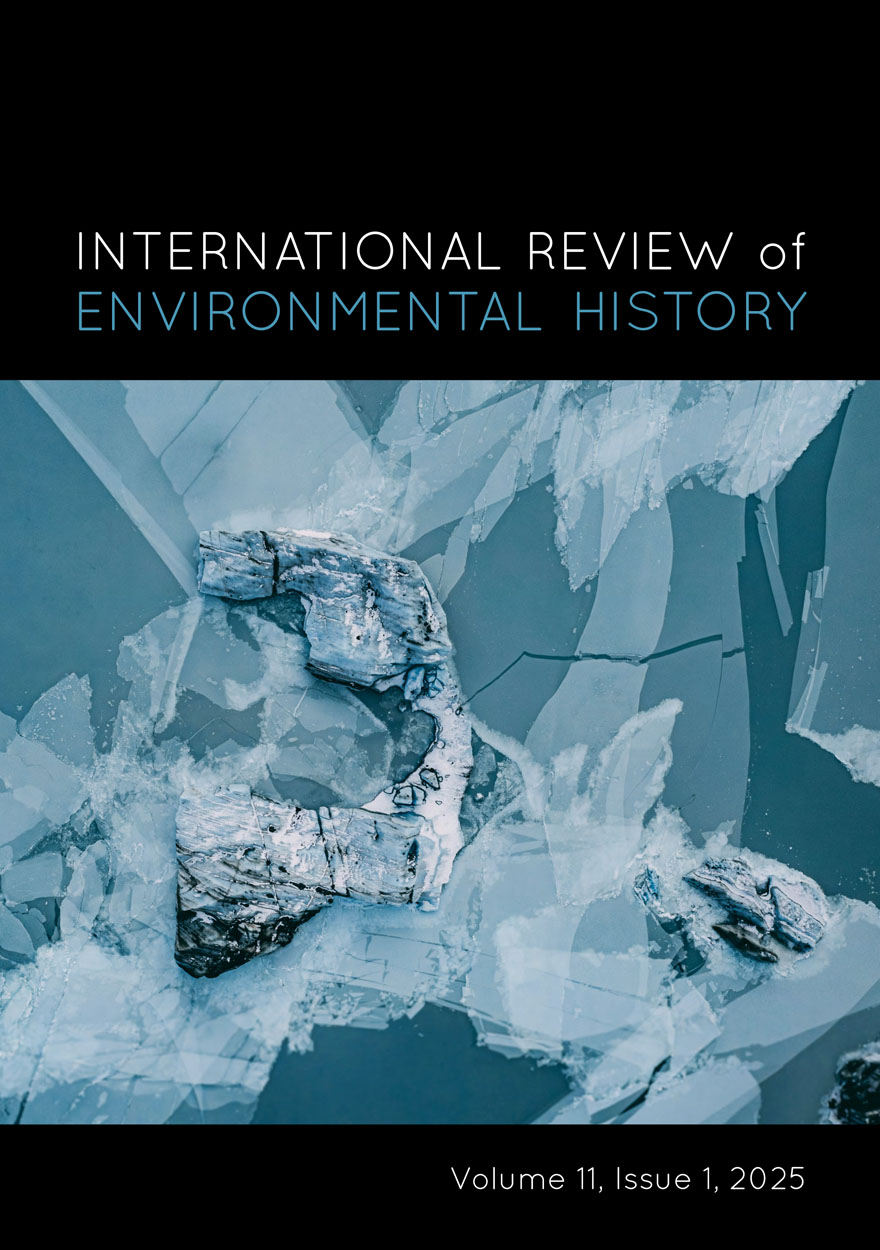
International Review of Environmental History: Volume 11, Issue 1, 2025 »
Coming soon
Notify me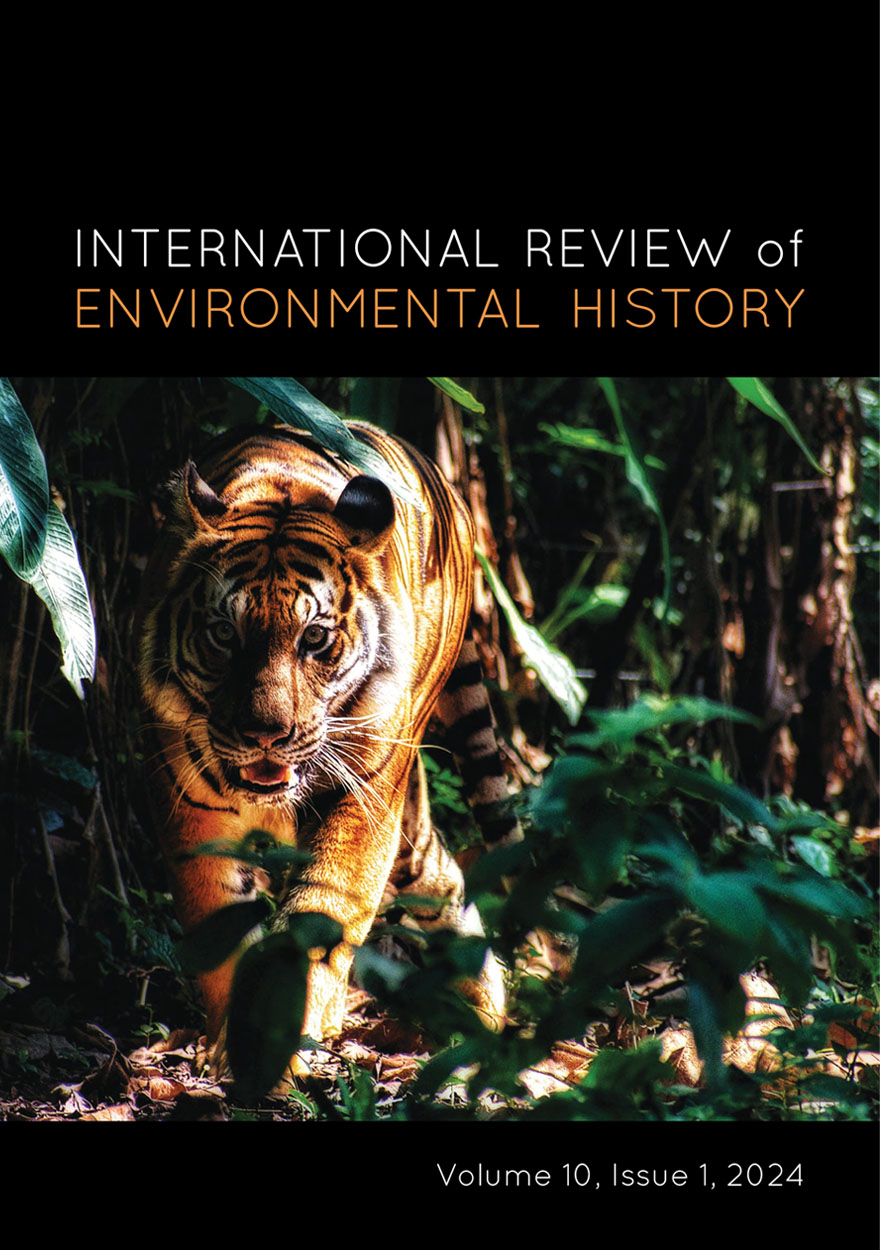
International Review of Environmental History: Volume 10, Issue 1, 2024 »
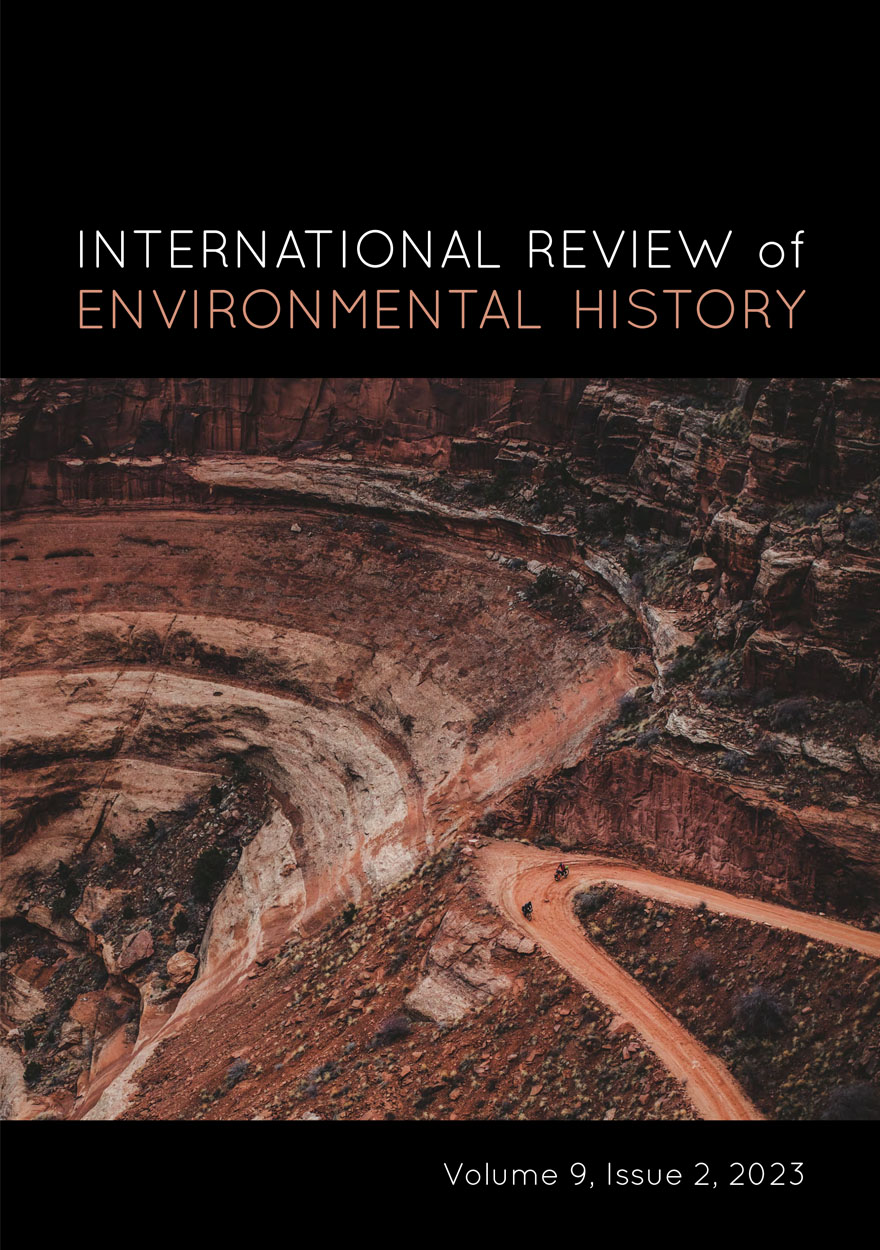
International Review of Environmental History: Volume 9, Issue 2, 2023 »

International Review of Environmental History: Volume 9, Issue 1, 2023 »
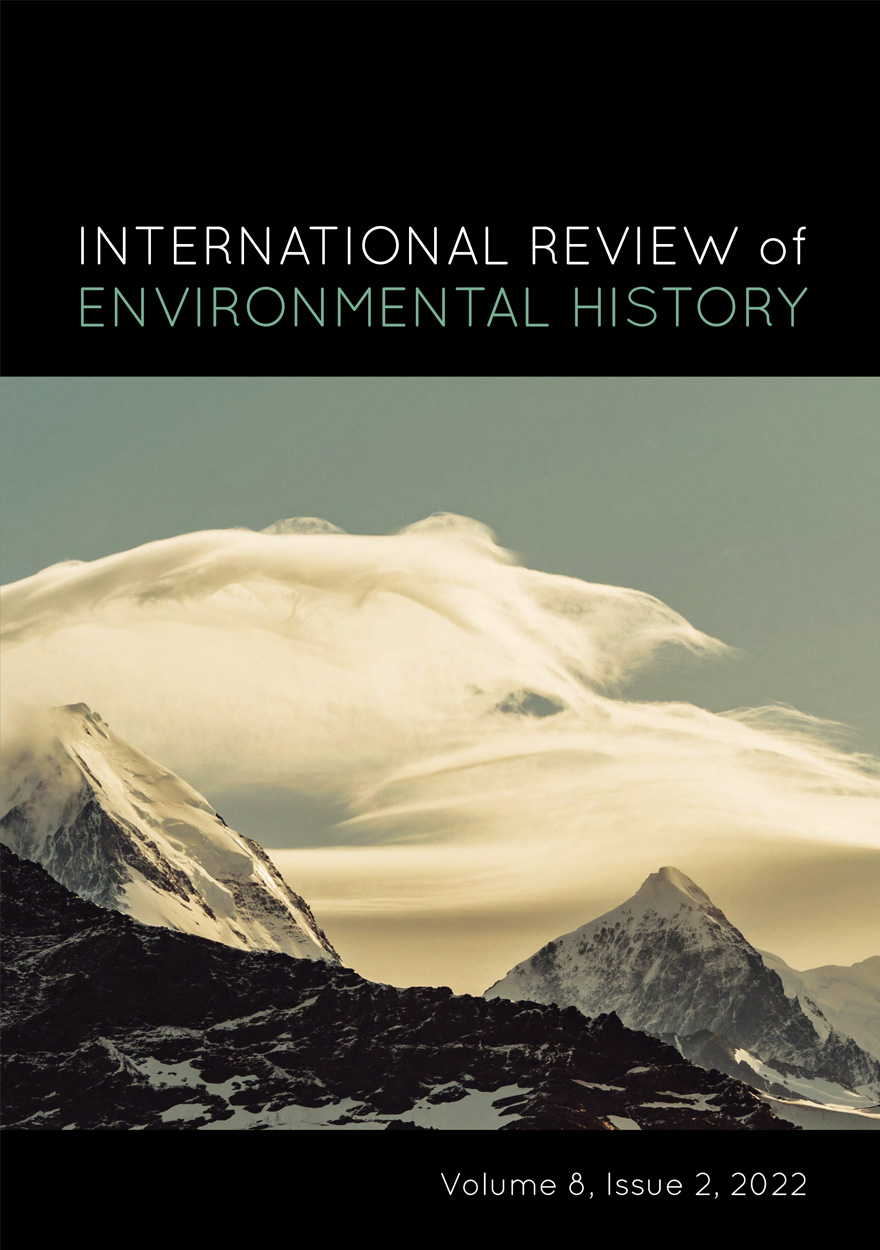
International Review of Environmental History: Volume 8, Issue 2, 2022 »

International Review of Environmental History: Volume 8, Issue 1, 2022 »

International Review of Environmental History: Volume 7, Issue 2, 2021 »

International Review of Environmental History: Volume 7, Issue 1, 2021 »
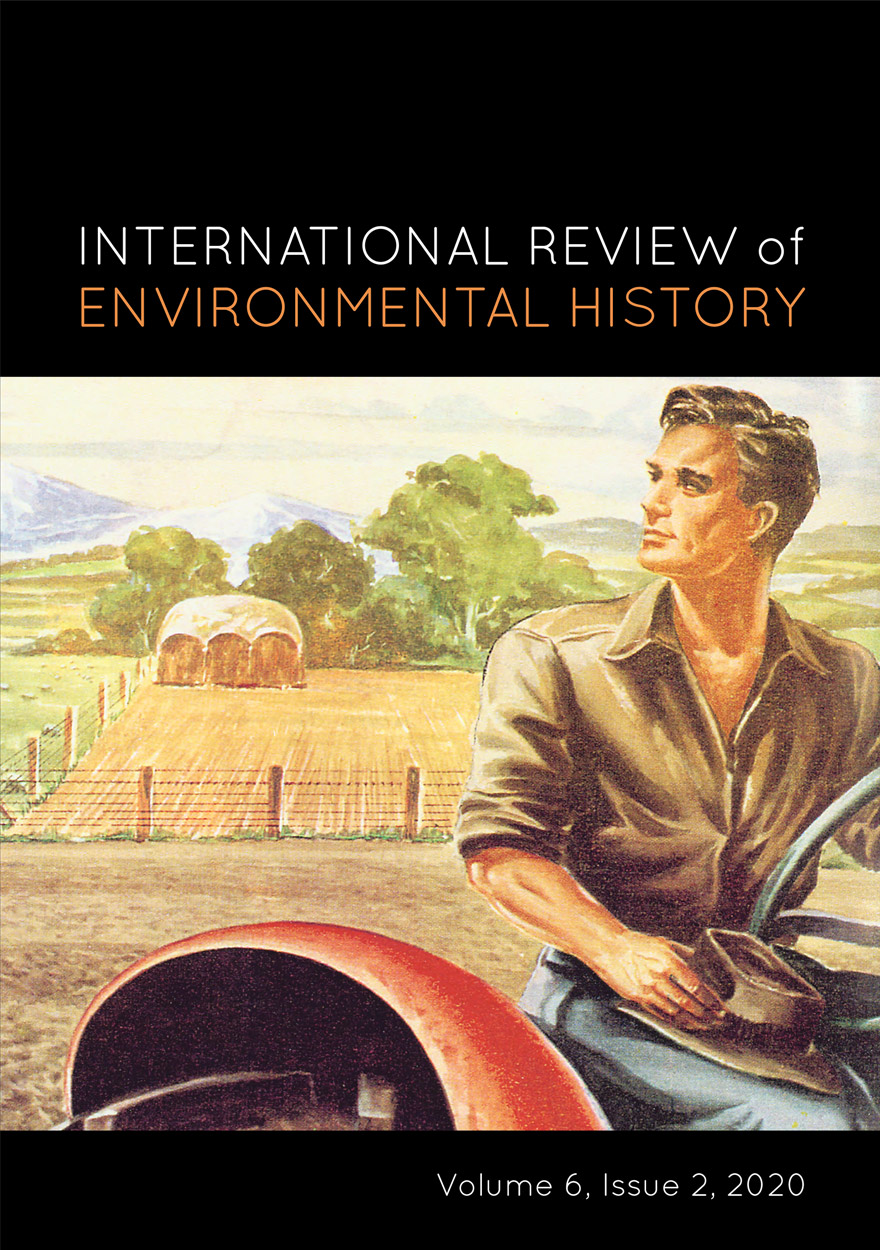
International Review of Environmental History: Volume 6, Issue 2, 2020 »

International Review of Environmental History: Volume 6, Issue 1, 2020 »

International Review of Environmental History: Volume 5, Issue 2, 2019 »

International Review of Environmental History: Volume 5, Issue 1, 2019 »

International Review of Environmental History: Volume 4, Issue 2, 2018 »

International Review of Environmental History: Volume 4, Issue 1, 2018 »

International Review of Environmental History: Volume 3, Issue 2, 2017 »

International Review of Environmental History: Volume 3, Issue 1, 2017 »
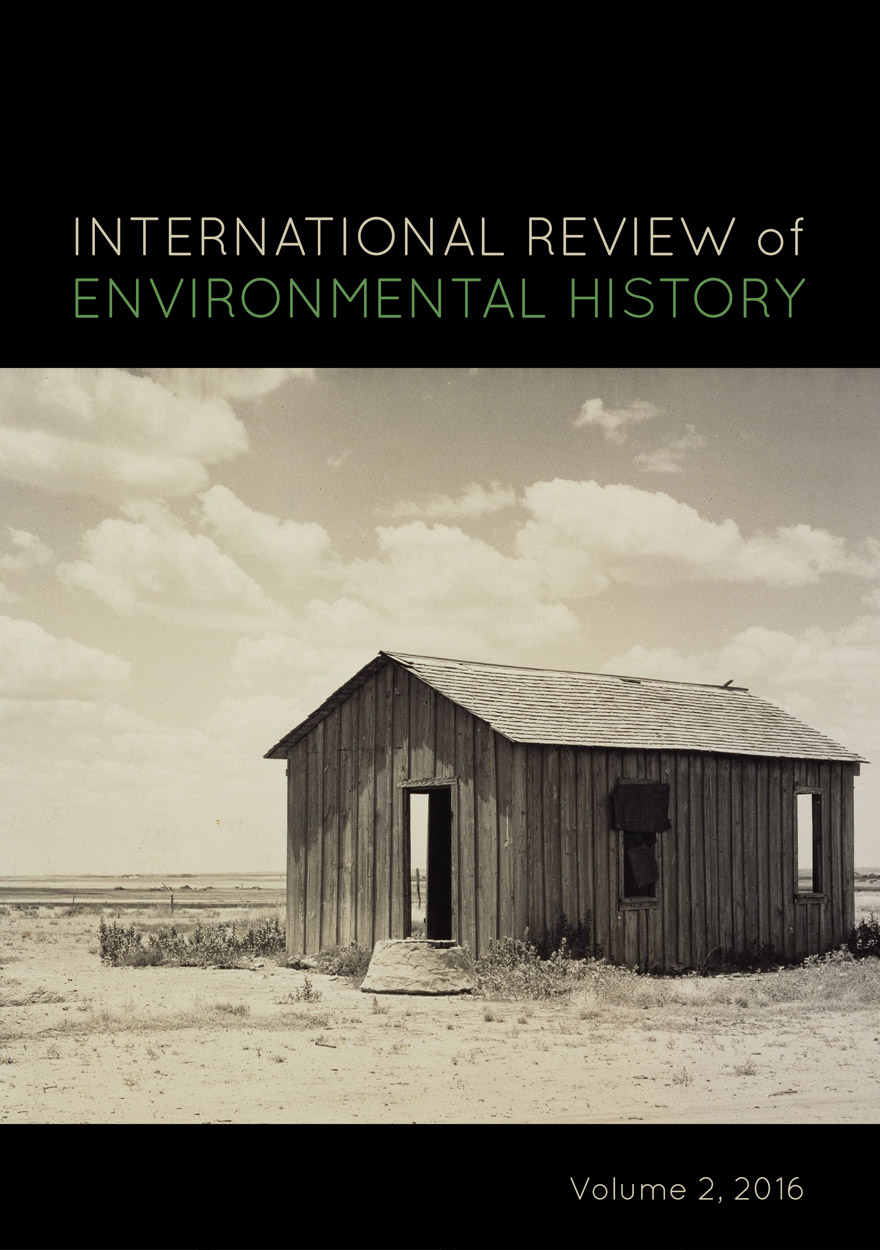
International Review of Environmental History: Volume 2, 2016 »
